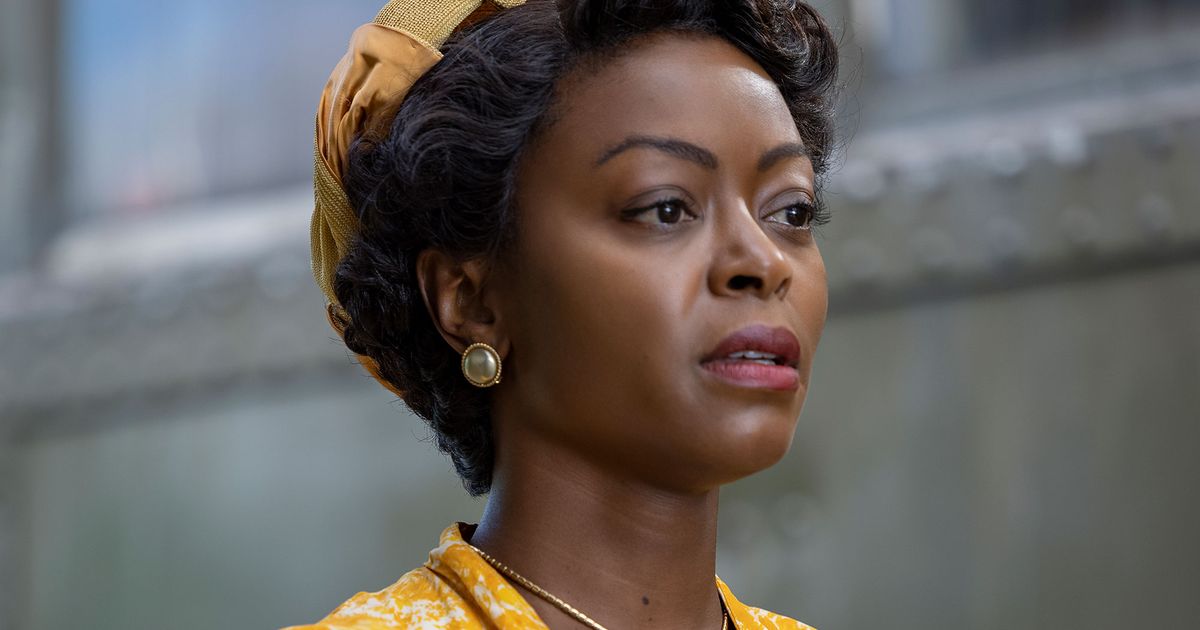
Till Is a Painstakingly Careful Drama About a Racist Atrocity
Alison Willmore is a film critic for New York magazine and Vulture. Formerly, she was the only critic at BuzzFeed News, the first TV editor at IndieWire, and the host of Filmspotting: SVU.
Chinonye Chukwu’s film about the murder of Emmett Till is both cautious about and hemmed in by the terrible event at its center. Photo: Lynsey Weatherspoon/Orion Pictures/Lynsey Weatherspoon / Orion Pict
Till is conscious of the act of looking in a way that reflects the agonizing decision made by its main character, the activist Mamie Till-Mobley, when confronted with the remains of her 14-year-old son. Emmett Till was lynched in 1955 while on a trip to Mississippi to visit his cousins, murdered for interacting with a woman named Carolyn Bryant in a way that she and other white people deemed an affront. When his brutalized body was returned to his mother in Chicago, mutilated and swollen from having been left in the river, Till-Mobley chose to have an open-casket funeral so that the world could see what had been done to her child. Thousands did, and even more saw the photos, and while neither of the men who were charged with the killing were convicted, the monstrousness of the crime galvanized the ongoing civil-rights movement.
Till-Mobley insisted people look, but it’s Mamie herself, as played by The Harder They Fall’s Danielle Deadwyler, whom director Chinonye Chukwu trains her lens on the first time the character lays eyes on Emmett’s corpse. The scene is shot from the back of the mortuary, framed precisely so that what we see isn’t the body, which is obscured by a table in the foreground, but Mamie’s stricken expression. Then, almost reluctantly, the camera shifts closer, though the film opts not to show Emmett’s ruined face, filling the screen with Mamie’s instead. We look at her looking, and we watch her as she lets out a howl of anguish. The focus here is not on the evidence of racist hatred but on a woman grappling with unimaginable loss. The contradiction of Till, one that’s impossible to resolve, is that it’s a film centered on an act of violence that became a national symbol, but it’s also a film that, as much as possible, would like to spare its audience that sight.
Is there a responsibility to look? Or, more pointedly, is it an abdication of responsibility to turn away? When a family member at the memorial service pleads, “I can’t look, Mamie,” Mamie tells her, “We have to.” Later, though, Mamie will look away from a different sort of terrible tableau, unwilling to watch Carolyn (Haley Bennett) enact in court what she claims happened when Emmett came into her store. Mamie already knows what the verdict, as decided by a jury of other white men, is going to be, and Chukwu allows Carolyn to slip out of focus as Mamie turns her face from the woman defaming her son. There is a cost to seeing these things, especially for the audiences who are mostly expected to buy tickets, to have trauma served up as proof that these experiences mattered and are remembered and that cinema can provide some form of accountability that the times did not. Chukwu — who wrote the script with Michael Reilly and Keith Beauchamp — is acutely aware of how many films about Black history have amounted to re-creations of atrocities against Black communities and bodies to the point where, in a promo for the film, she promised no physical violence against Black people would be shown.
This is accurate — when Emmett, played with a bright grin and an irrepressible sense of mischievousness by Jalyn Hall, is taken, we’re shown only a shot of the exterior of the barn in which he was tortured and likely died. But Till, as a whole, while handsomely made, is also so stiflingly careful that it feels as if everyone involved in its making must have been holding their breath the entire time. Deadwyler embodies a heartbreaking dignity in the face of grief and cruelty, and Chukwu, who in her 2019 film, Clemency, coaxed a stunning performance out of Alfre Woodard as a troubled prison warden, showcases her performance with long close-ups and unexpected compositions. And yet the film is unquestionably hemmed in by the pressures of history. While it eschews the familiar rhythms of the biopic, it’s never able to commit to being about Mamie’s journey as deeply as it would like to be. By framing Mamie’s story entirely in the context of her son’s death, Till keeps us on the outside of her transformation from a woman focused on her own life to one who believes, as she says in a speech at the end, that “what happens to any of us anywhere in the world had better be the business of us all.”
We don’t get much of a sense of who Mamie was before her son’s murder or see what she went on to do afterward. We see her gazing out at the streets of the historically Black town of Mound Bayou, Mississippi, a sanctuary, and meeting Medgar Evers (Tosin Cole), who less than a decade later would be assassinated for his work on behalf of voting rights and to overturn segregation. And yet Mamie herself remains foremost a vehicle for tragedy. Till wants to avoid turning its tragedy into spectacle, but it can’t help but use its main character as a means for its viewers to get an indirect glimpse. The film understandably desires to bear witness, however difficult that may be — it wasn’t until March of this year, after decades of failed attempts, that lynching was made a federal hate crime in an act named after Emmett Till. When Till premiered at the New York Film Festival earlier this month, it was given a special student screening that was livestreamed to other states, and its ideal context may very well be educational. It’s a film that feels made for the classroom, though it also showcases the sort of ugly history that purveyors of “anti-CRT” hysteria are trying to banish from schools. The other side of the question of whether we have a duty to observe what happens when people try to stop us from seeing at all.
The Critics Newsletter
Sign up to get New York’s week in reviews.This site is protected by reCAPTCHA and the Google Privacy Policy and Terms of Service apply. Vox Media, LLC Terms and Privacy Notice
<
p aria-hidden=”true”>By submitting your email, you agree to our Terms and Privacy Notice and to receive email correspondence from us.










































![iFi's GO Bar Kensei Dongle DAC Supports K2HD Technology With Some Samurai Swagger [Updated] iFi's GO Bar Kensei Dongle DAC Supports K2HD Technology With Some Samurai Swagger [Updated]](https://i0.wp.com/cdn.ecoustics.com/db0/wblob/17BA35E873D594/33FF/45A11/QTXOLJR4xDKSNMMk2WlTgjaIlvSgcYpeU1xJzUwIoYs/ifi-go-bar-kensei.jpg?w=768&ssl=1)































